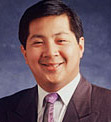"If there is an appearance that doesn’t look right then I really don’t want to perpetuate that and cause more problems," said Fang, who has served on the board since 1990.
Related
Fang said the money did not influence his vote and that he simply followed BART staff's recommendation to award the contract. He said he does not get involved in pushing for one contractor over another.
"Heavens no. It is entirely staff," he said. "It’s a very rigorous process."
Krishnan said his contributions constitute "free speech."
"All these limitations are all unconstitutional and illegal," he said. "We have the right to free speech in America. Are you working against that?"
BART Director Lynette Sweet said the board should go back to a previous policy banning campaign contributions from contractors.
"When you’re giving to the same directors who keep voting to give you contracts over and over, it just doesn’t look good," she said.
The board banned contractor money in 1996 in the wake of a bribery scandal. One former BART director pleaded guilty to accepting bribes; another pleaded guilty to lying to FBI agents. The bribes involved were as small as $1,000.
Then, in 2007, BART directors including Fang loosened the rules to allow contributions of up to $1,000 from contractors with pending bids. BART's nine directors serve four-year terms.
In February 2010, when Krishnan had pending business with the board, the contractor hosted a fundraiser for two BART directors up for re-election, Thomas Blalock and Joel Keller.
"He had a little gathering ... and got consultants together to honor us and toss some money into the pot, which is a typical thing they do," Blalock said. "He even brought in some of his people from Southern California."
Several other contractors gave money, but Krishnan showed them up. Krishnan's company gave $1,000 to both Blalock and Keller. Each director also received another $500 from Krishnan and his wife; $500 from a company manager named Dev Krishnan, and $250 from another employee.
The extra $1,250 Blalock and Keller received came from individuals, not the company's account, so it shouldn't count toward the $1,000 limit, Blalock said. Aside from the contractor regulation, there are no limits on BART campaign contributions. Blalock noted that the rules are "not as tough anymore."
"I’ve taken a more relaxed attitude about it also," he said. "I don’t think we’ve crossed the line anywhere."
Blalock said the money doesn't influence his votes.
Krishnan, whose office is across the hall from the BART boardroom in Oakland, said, "My friends need to have some money."
"Political campaigns are expensive, they need money and these people do very good work," he said.
Keller, who led the charge to loosen contribution rules in 2007, did not return phone calls.
On Aug. 11, Keller, Blalock and Fang voted with the board majority to give Krishnan's company and two others engineering contracts worth up to $20 million for each company over five years. Krishnan's firm is a general engineering contractor.
Krishnan had received an award in 2009 for $15 million over five years, but the money has been used up early. Sweet, upset at how quickly the last award had been spent, was the only director to vote against the new awards.
Two unions representing BART employees opposed the new contracts, arguing that BART staff could do some of the work that was being contracted out. One of the unions, Service Employees International Union Local 1021, gave Fang $7,500 in Februrary.
But Fang said at the meeting that he supported the contracts, in part because the companies are led by minorities.
"You have basic firms, people of color, taking the principal role," he said. "And that’s what, without getting too corny, that’s what America is about. So I plan to move forward and support this."
In a separate decision earlier this year, Fang pushed for the board to negotiate a real estate deal with a longtime friend, developer Lawrence Lui. As previously reported, Lui had given Fang $3,500 last year. BART's campaign contribution rules refer to contractors, not developers.
Michael Van Every, senior vice president at Republic Urban Properties, which had a competing development proposal, called the campaign contributions "completely ethically wrong."
"I think the BART conflict of interest laws are a joke," he said.
Fang said the money didn't influence him and pointed out that Republic Urban had hired a lobbyist to push its proposal. He said Lui has "been giving me money for like 20 years."
"Because we’re both Chinese, people are focusing in on this quote 'relationship,' and I think that’s very unfair," he said. "Why all this attention on this poor Chinese guy? We didn’t even award him anything. We awarded him the right to negotiate."
Will Evans is an investigative reporter for California Watch, a project of the non-profit Center for Investigative Reporting. Find more California Watch reporting here.
